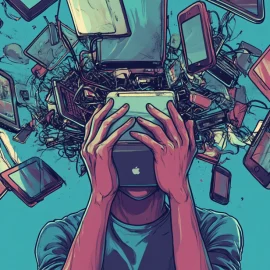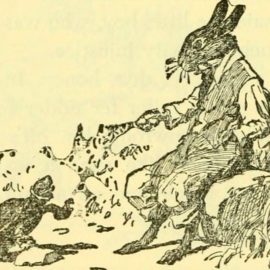

This article is an excerpt from the Shortform book guide to "Mistakes Were Made (But Not by Me)" by Carol Tavris and Elliot Aronson. Shortform has the world's best summaries and analyses of books you should be reading.
Like this article? Sign up for a free trial here.
Why do relationships end? How does self-justification lead to polarization?
According to the book Mistakes Were Made (But Not by Me), two people who start off sharing the same beliefs can become vastly different over time and lose empathy for each other through a pattern of self-justification.
Keep reading to learn how extreme divergence in once similar people’s beliefs can cause relationships to end.
Why We Seek Out People Similar to Us (And Avoid Those Who Aren’t)
Why do relationships end? Polarization and a difference in beliefs and ideas are common reasons why relationships don’t make it. Drifting apart from people who were once close to us because of polarization can be distressing and even lead to us abandoning previously close relationships. Because we usually care about the opinions of people close to us, we experience cognitive dissonance when they have beliefs that conflict with our own. Therefore, we generally prefer to be around people who are similar to us, and we might discontinue relationships when our beliefs diverge. Our tendency to gravitate toward people with similar beliefs, values, interests, and experiences (and avoid those we deem different than us) is called affinity bias.
Thousands of years ago, this was an evolutionary trait that helped us form protective social networks and diverse belief systems. Now, it’s a problematic bias that undermines collaboration and limits the ideas we’re exposed to. Studies have mapped affinity bias in the brain—when we think about people within our group, it activates the same neural pathways that light up when we think about ourselves, making us predisposed to show these people more empathy. In contrast, we use other neural pathways to think about people outside of our in-group.
How Making Different Choices Drives People Apart
The authors illustrate the pattern of polarizing self-justification starting with a single choice. You and another person are presented with the same dilemma, and one of you chooses the first path, while the other chooses the second. Before making your choice, either of you could have chosen the other path. After making your choice, however, each of you uses self-justification to resolve any dissonance that results from your decision, which changes your view on the issues involved in the dilemma. You each believe there was no other option than picking your (starkly different) routes.
The authors further explain that your justifications for the original choice inform future actions that again take you further from the other person’s beliefs, and you develop justifications for those subsequent choices. Over time, as you continue a cycle of justification and action, your beliefs on the matter become more extreme and polarized from the beliefs of the person you once agreed with. You’re no longer able to imagine taking the alternative path, and you can no longer remember feeling any differently. These patterns can leave once-similar people unable to empathize with or understand each other.
Example: Giving Someone Money on the Street
Let’s take a look at a small-scale example. Say that you and a stranger both pass a person on the street asking for money. That stranger has a similar background and value system to you. Initially, you’re both conflicted about whether to give the person money—you don’t know what the person will use the money for, and you don’t want to aid someone else’s bad decision. At the same time, the person on the street clearly needs help, and you don’t want them to go hungry just because of your suspicion.
You decide to give the person on the street a few dollars, hoping that they’ll get something to eat. The person thanks you profusely. Afterward, you dismiss any sense of worry you had before with the justification that you just made someone’s day a little bit better. You tell yourself that you can’t control what people will do with the money you give them, but that should never stop you from offering help when someone needs it. The next time someone asks you for money on the street, you give them a few dollars without hesitation. After several positive interactions with people in need, you can no longer imagine ignoring someone asking for money—now, you feel a moral obligation to offer help when you can.
The stranger chooses the alternative path—they decide to walk past without acknowledging the person asking for money. They suppress any dissonance from their decision with the justification that they can’t trust that the money won’t be used for something harmful, so it’s better not to get involved. They also heard a story on the news about someone being attacked while trying to give a person money, so they feel justified in protecting their safety. The person on the street can get help from someone else if they really need it.
The next time they see someone asking for money, the stranger walks to the other side of the street, their prior justifications running through their head. Now, they actively avoid people asking for money, believing that it’s always better to be safe and that it’s not their problem to solve. Though you and the stranger started off with the same hesitations and the same desire to help, you end up with very different values because of a single decision.

———End of Preview———
Like what you just read? Read the rest of the world's best book summary and analysis of Carol Tavris and Elliot Aronson's "Mistakes Were Made (But Not by Me)" at Shortform.
Here's what you'll find in our full Mistakes Were Made (But Not by Me) summary:
- Why we feel discomfort when we act in a way that doesn't align with our values
- How patterns of self-justification can cause our beliefs to diverge sharply from other people’s
- How we can break the cycle of self-justification and hold ourselves accountable






